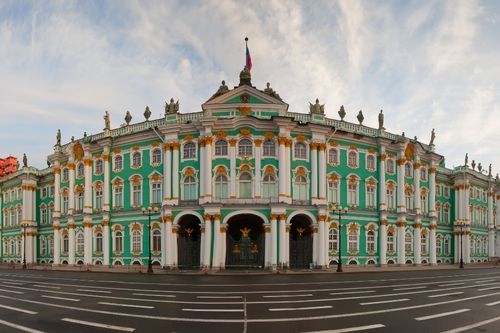Table of Contents
Sweden | An innovative nation
Sweden is a popular choice to study abroad for international students. Students can choose from approximately 1,600 study programs and disciplines at 38 major universities and institutes that offer Bachelor’s and Master’s degree programs in English. Scholarships are also available to students from various countries. Education is free for students from the EU/EEA and Switzerland at top universities in Sweden.
Sweden’s education system is high-quality, adaptable, and unconventional. Swedish degree programs enable students to combine practical work with their studies. Students benefit from firsthand experience when they enter the job market. Internships with businesses in Sweden will provide a natural feel for a working environment.
Living in Sweden is simple and secure. Most Swedish people speak English, and knowledge of the Swedish language is not required to study there. The country’s public facilities are excellent.
Benefits of studying in Sweden
High-quality and unconventional education system
Sweden’s education system is one of the best in the world. According to the Academic Ranking of World Universities in 2021, the Karolinska Institute in Sweden ranked in the top 50. Master’s programs in mathematics, mechanical engineering, medicine, physics, software engineering, urban planning, and political science are particularly strong in Sweden.
A forward-thinking country
Sweden has universities that date back to the 15th century. The academic and research excellence of Sweden’s universities has resulted in modern inventions such as the computer mouse, the pacemaker, Bluetooth, dialysis equipment, and Internet applications such as Skype and Spotify.
Sweden’s multicultural environment
Sweden is emerging as a higher education destination for international students. The master’s degree portal’s wide range of disciplines is a significant draw. Universities offer a variety of scholarships. Scholarships range from 50% to 75% of the tuition fee for students from various countries. As a result, Sweden has a diverse population of people from all over the world, each with their own set of perspectives and experiences. Students gain experience interacting with people from various communities and cultures.
Student life
Sweden has a distinct and exciting student culture steeped in centuries of tradition. Uppsala and Lund have the highest student populations, as do student nations. Many groups organize student events in these cities. International students have the opportunity to meet and socialize with students from all over the world.
Top 5 universities in Sweden
Karolinska Institute

Founded in 1810 in Solna, greater Stockholm, The university used to train army surgeons. It has since grown to two campuses, the second of which is in Flemingsberg, just south of Stockholm.
The Karolinska Institute takes pride in its world-class medical research. It consistently ranks as one of the best and most prestigious medical schools in the world.
The university provides a variety of health and life sciences degrees and postgraduate programs. Medicine, psychology, psychotherapy, dentistry, midwifery, nursing, audiology, optometry, physiotherapy, radiography, occupational therapy, and speech and language pathology are among those available to undergraduates.
The Karolinska University Hospital, where students train and conduct research, is nearby. There are also international exchange programs with universities in Australia, China, Denmark, Finland, and the Netherlands.
Lund University

Lund University is a public institute in the Swedish city of Lund. It also has campuses in Malmö and Helsingborg. The university has more than 27,000 students and more than 20 research centers and institutes.
Founded in 1668, the same year as the university, the library at Lund University is one of Sweden’s oldest and largest.
Lund dates back to 990, so there is more than 1,000 years of history among the cobblestone streets, as well as modern restaurants, shops, and venues.
The university colors are dark blue and bronze and the university motto is ‘Ad utrumque’, which translates to ‘Prepared for both’. The motto is commonly interpreted as referring to the importance of physical and spiritual exercises, encouraging students to defend the country as members of the military and to teach the population the Swedish language as clergy preaching in Swedish.
Uppsala University
Founded in 1477, Uppsala is Sweden’s oldest university, but it also has modern campus buildings. The university has associations with eight Nobel laureates.
Beginning with a strong emphasis on theology and only 50 students, the university now has three disciplinary fields- arts and social sciences, medicine and pharmacy, and science and technology, with approximately 70 undergraduate courses. Law, medicine, and psychology are among the most popular majors among first-year students.
With an increase in application numbers, Uppsala is becoming more selective in its admissions process. It has also established exchange agreements with over 400 universities worldwide.
The cathedral bell is rung at key academic ceremonies, reflecting the university’s religious origins. Another of the university’s traditions is the white student cap, which was first worn by Uppsala students to identify themselves in the 1840s, and still, they follow this tradition on April 30th, the ‘Walpurgis Eve,’ to celebrate the arrival of spring.
KTH Royal Institute of Technology
KTH Royal Institute of Technology is Sweden’s largest and oldest technical university. Engineering and technology are the focus of the university’s teaching and research efforts. Architecture and the built environment, electrical engineering and computer science, engineering sciences, engineering sciences in chemistry, biotechnology and health, and industrial engineering and management are the six schools at the university. The main campus is in the Stermalm area, with smaller campuses in Kista, Flemingsberg, and Södertälje.
Stockholm University
Stockholm University began as a college in 1878 and became a university in 1960. It now has over 27,000 students enrolled. The university is situated in the world’s first national urban park, surrounded by extensive woodland, plants, and trees, including over 800 species of flowering plants and over 100 species of birds, with the Baltic Sea inlet of Brunnsviken and beaches to its north. The university is a short metro ride from the city center, allowing students to enjoy the city’s cultural attractions.
Key takeaways
- Sweden is a popular study-abroad destination among international students. It provides 1,600 study programs and disciplines at 38 major universities and institutes that offer Bachelor’s and Master’s degree programs in English.
- Sweden is a forward-thinking country that provides benefits such as high-quality education, a multicultural environment, and exciting student life.
- Karolinska is a high-ranking institute in Sweden that provides health and life science courses. Royal Institute of Technology, KTH Royal Institute of Technology, Lund, and Uppsala universities are other top-ranking institutes in Sweden.
Did you find this blog informative? If so, please share your thoughts in the comments section below. Click here to contact us for more information on Top universities in Sweden. We would be happy to assist you with your queries.
Liked this blog? Read next: 7 things to know before studying in Sweden | Top colleges, fees & more!
FAQs
Q1. Which universities are best for international students in Sweden?
Ans- Apart from the above listed 5 universities, Swedish universities that are best suited for international students are the University of Borås, University College West, Dalarna University College, Halmstad University, Blekinge Institute of Technology, Mälardalen University College, and Kristianstad University College.
Q2. Is IELTS required for studying in Sweden?
Ans- You must provide proof of English language proficiency because programs in Sweden are taught in English. The overall IELTS requirement for a Swedish student visa is 6.0, with no band less than 5.5, and a TOEFL score of 72 or equivalent.
Q3. Is the MS course free of cost in Sweden?
Ans- If you are from the European Union (EU), the European Economic Area (EEA), or Switzerland, you can study a master’s course in Sweden for free. Students from other countries must pay an application fee of €81 in addition to tuition fees.







